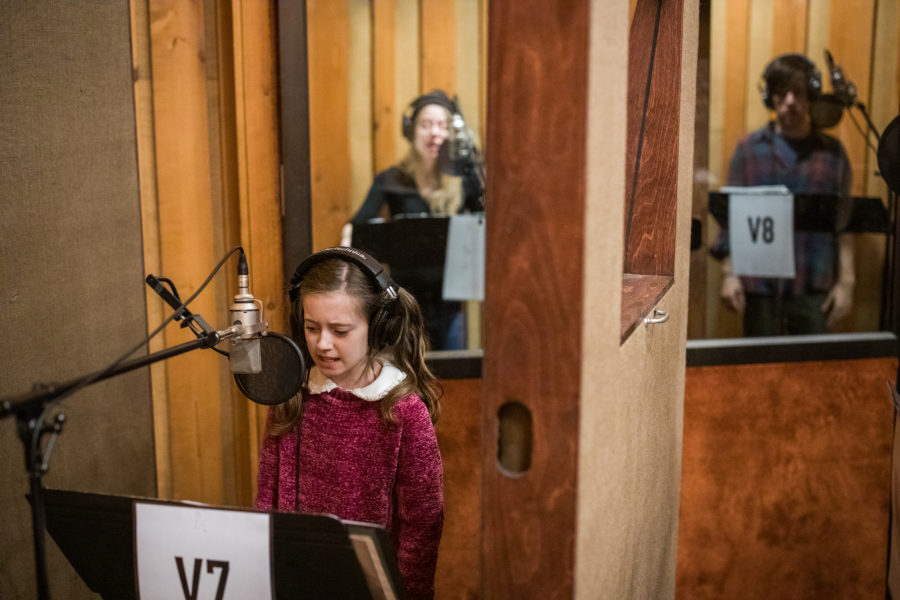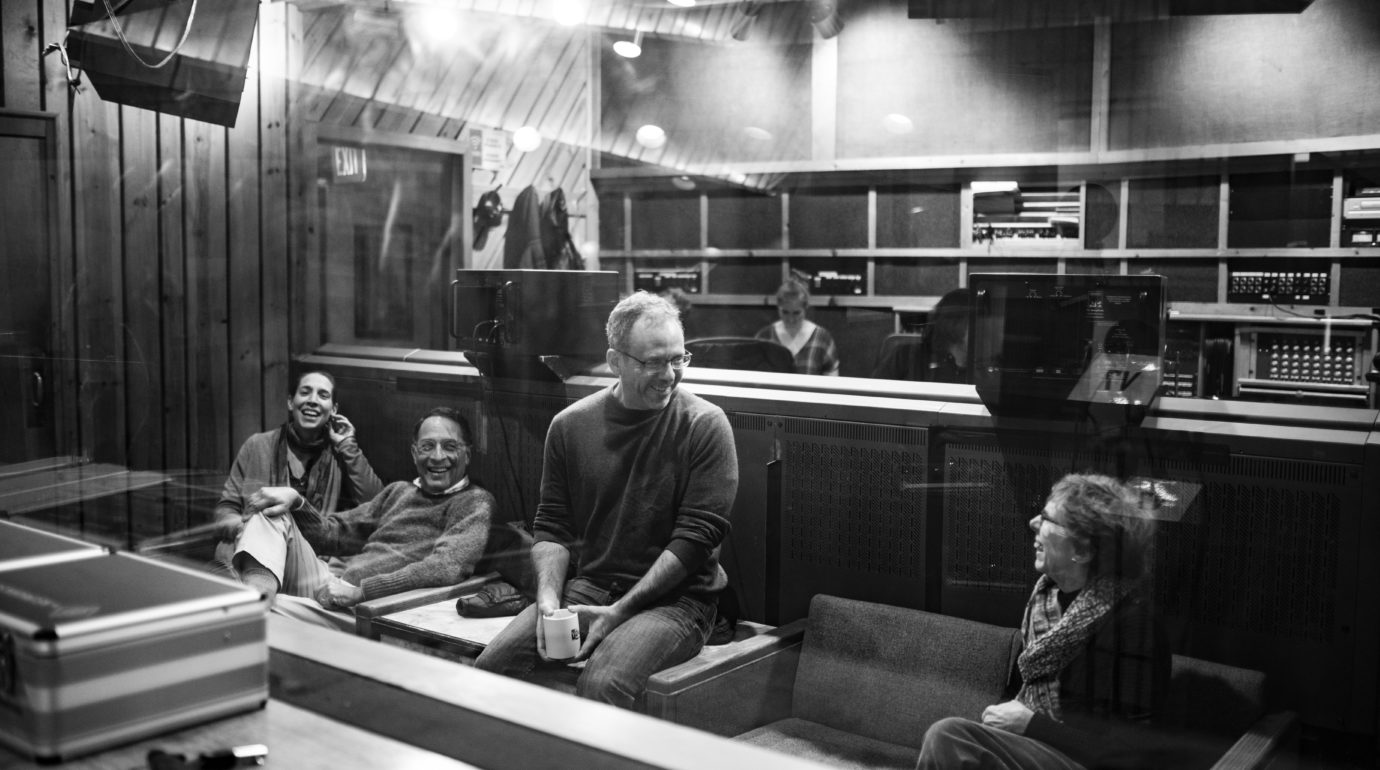When Jennifer Tepper, producer, historian, and creative and programming director at Feinstein’s/54 Below in Manhattan, was still in the early stages of working on The Jonathan Larson Project, she and composer Michael Friedman had a conversation about legacy.
Tepper was sitting on the artists board for New York City Center’s Encores Off-Center series, a few years after she had produced a rare songs Lobby Project ahead of a performance of Larson’s Tick, Tick…Boom!, and Friedman had just taken over for Jeanine Tesori as artistic director. The conversation was around the fact that behind so many of those Off-Center shows were the people carrying on the creators’ legacies: Roz Lichter (Elizabeth Swados’ widow), Sarah Ashman (Howard Ashman’s sister), Julie Larson (Jonathan Larson’s sister)—and continuing to water their metaphorical gardens.
Not long after, on Sept. 9, 2017, Friedman died of complications from HIV/AIDS at the age of 41. In 2018, the Michael Friedman Legacy Fund was established, and Tepper staged the completed Jonathan Larson Project at Feinstein’s 54 Below; earlier this year, that project was recorded and released by Ghostlight Records. But Friedman—another prematurely lost talent—clearly deserved his due as well, which is why the theatre troupe he worked with, the Civilians, in partnership with Ghostlight, has released the first phase of The Michael Friedman Recording Project, a nine-album collection of Friedman’s previously unrecorded work.
Upholding legacies as large as those of these two composers requires time and community effort. Though Friedman and Larson didn’t have enough time, they left behind no shortage community, with those close to them in the industry committed to preserving their work, and those who are now getting to discover it for the first time.

The Michael Friedman Recording Project began on June 4, 2018 at Joe’s Pub. The Civilians, of which Friedman was a founding member, took the stage to launch his Legacy Fund to help finance the preservation of his unrecorded work. Up to this point, only five of his scores had been recorded: Bloody Bloody Andrew Jackson, The Fortress of Solitude, and Love’s Labour’s Lost, and two shows he created with the Civilians, Gone Missing and Pretty Filthy.
The Great Immensity, The Abominables, and This Beautiful City are the first three albums to be released, recorded by a mix of original cast members from the shows alongside new performers. Unknown Soldier, which will play at Playwright’s Horizon later this season, is one of six others yet to be released.
For Steve Cosson, artistic director of the Civilians and a frequent Friedman collaborator, the recording process has been “an opportunity to reconnect with him, both emotional yet cathartic. Obviously, there’s still this loss that is very present, but I think because…it centers on the music and Michael’s creative work, it makes it feel as if he’s very present and part of it.”
The last musical Friedman was working on before he died was the The Abominables, a commission from the Children’s Theatre Company about children’s hockey that was created through interviewing more than 100 hockey players, coaches, and family members across Minnesota. Cosson co-wrote and directed the piece, and Friedman wrote the music and lyrics. The show premiered in Minneapolis the weekend after his death.
For Cosson, the recording project is a way for Friedman’s work to live on and find new audiences. “Yes, a lot of people that we know saw these particular shows and know that music,” says Cosson. “But relatively speaking, that’s actually a fairly small group of people [and] there’s no way to hear that music. There are people out there who would potentially be moved or inspired by his music who have never heard it.”
Though the circumstances were different, Friedman’s untimely death uncomfortably echoes the tragic loss of Rent composer Larson, who died in his kitchen the morning of that show’s first Off-Broadway preview due to an aortic aneurysm.
Accordingly most of the accolades he received came after his death: three Tonys and one Pulitzer, yearly grants in his name, and the 11th longest-running show in Broadway history, for which he is mostly known. (A coming film of Tick, Tick…Boom! may raise that show’s profile.)
The Jonathan Larson Project culminates a multi-year labor of love for Tepper. She first made contact with Larson’s family, specifically Julie Larson, and took six trips over the course of four years to the Library of Congress in Washington, D.C., where Larson’s collection, including materials broken down to a near-obsessive level of detail—lists of works, boxes of scripts, vaguely labeled artifacts like “1983 Tape 2”—have been housed since his death. All this helped Tepper get to know Larson, decades after his death.
“Most of what was helpful was, honestly, just the general sense of who Jonathan was and what his ideas were and what his goals were, as I tried to interpret it,” Tepper explains.
Slowly the goal began to unfold: to create the song cycle Larson never got to make, featuring songs from never-produced shows like 1984 and Superbia. She worked with Charlie Rosen, the Project’s music supervisor and orchestrator, to figure out how these unheard songs would sound if Larson had fully orchestrated them.
The Jonathan Larson Project debuted at Feinstein’s/54 Below in October 2018 and ran for six nights, with a cast that included Nick Blaemire, Lauren Marcus, Andy Mientus, Krysta Rodriguez, and George Salazar, plus nightly special guests. Characteristically Larson, the revue featured eerily prescient numbers, manic Sondheim-esque musical soliloquies, and at least two tear-inducing moments.
When it came time to record it, Ghostlight stepped in again: The Project was recorded and released this past April. Earlier this month, it was deemed Grammy Award eligible for Best Musical Theater Album.
Both The Jonathan Larson Project and The Michael Friedman Recording Project reveal just how varied and proficient the two composers were across genres. Both display talent that was in the process of shaping what a new “Great American Songbook” might sound like. Rent and Bloody Bloody Andrew Jackson are considered “rock” musicals, though both composers crossed multiple genres and subgenres of popular music. In Larson’s own words in 1996, as he was asked if he considers his music part of the American theatre tradition, he said, “American popular music used to come from theatre and Tin Pan Alley, and there’s no reason why contemporary theatre can’t reflect real contemporary music.”
Friedman had a sound that was distinctly his, despite his incredibly diverse oeuvre. The sound of Unknown Soldier is different from Fortress of Solitude, which is different from Bloody Bloody Andrew Jackson. What they share, Cosson says, is “Michael’s ability to get inside of a different language and to both succeed at writing in that idiom while also having his own voice. I think that is a big part of what made him such a special artist—that even across all the different kinds of work that he did, he had such a distinctive voice…a way of seeing people.”
The most important thing for these producers is accessibility: These projects means that more people will hear the songs, more people will perform them, and the Great American Songbook adds a few pages. In the history of theatre, says Tepper, “best” is always subjective, and what gets recorded isn’t necessarily the “most important” project being produced. It’s usually which productions were lucky enough to have the funds to record an album, as there’s usually no financial imperative to do so. We’ve already lost a lot of theatre history to time.
These days it’s easier to preserve new musicals, as we all have recording devices in our pockets at all times. “We have the ability to put so much art on the internet and on YouTube and on social media so that people can grow their audiences,” she says.
The Jonathan Larson Project just performed at the American Theatre Gala in September, and Tepper has talked about an expanded theatrical version, as well as making sheet music accessible. Thanks to the Friedman Legacy Fund, Friedman’s work will eventually be completely digitized by the New York Public Library and made available online. Marion Friedman Young, Friedman’s sister and administrator of his estate, has been working with Doug Reside at the NYPL on the project, which she expects will be available within the next year.
Meanwhile, the estate has launched a SoundCloud project that will include incidental music for more than 30 Friedman plays and other works, including Misery, The Water’s Edge, and more. “We hope that music can live on in new forms and new productions, so we’re providing access to it free of charge for theatre companies and theatremakers without the resources to create and record new scores for their productions,” the description notes. As long as credit is given to Friedman, it will be free to use.
Tepper emphasizes the importance of having these recordings. “There’s going to be someone who gets into Michael Friedman because of them, and then goes to listen to his other stuff.”
Ashley Steves is a freelance arts and culture writer and the co-host of BroadwayRadio’s Today on Broadway. Follow her on Twitter @NoThisisAshley, and read more of her work at www.ashleysteves.com.


